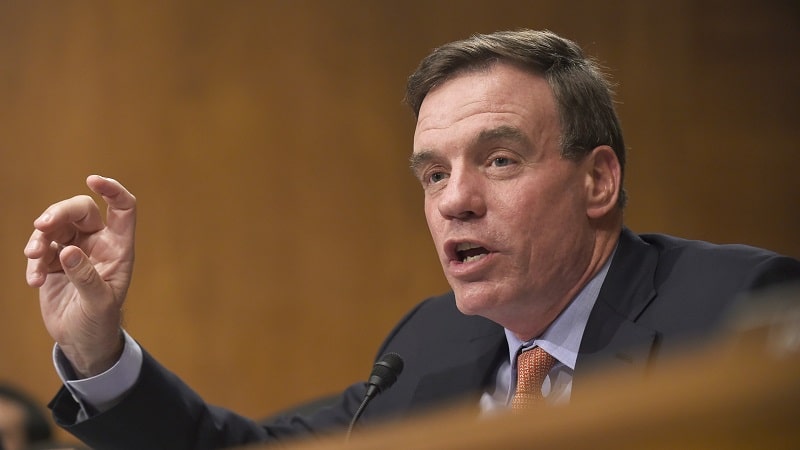
Artificial intelligence (AI) technologies hold tremendous potential to revolutionize crucial national sectors ranging from health care to national security, two congressional proponents of AI legislation said on June 13.
Rep. Don Beyer, D-Va., a leading member of the recently formed House AI Task Force, said AI’s capacity for early detection of cancer is “changing all of our lives.”

“The notion of breast cancer and lung cancer, and every friend who has died of cancer the last five years, it’s been pancreatic cancer,” Beyer said at an AI Aspirations event in Washington, D.C., sponsored by the White House Office of Science and Technology Policy (OSTP).
“And the notion that with AI, we can look at and see a high risk of pancreatic cancer three and four years earlier,” Beyer said. “Right now, with the diagnosis, it’s too late. So if you can see it three or four years ahead, there’s a real chance you can make a difference.”
Speaking at the same event, Sen. Mark Warner, D-Va., who chairs the Senate Intelligence Committee, emphasized AI’s potential impact on the military and national security – but also cautioned that U.S. officials need to resolve any potential ethical concerns.
As an example, he said he has recently seen proposals to help Ukraine, in its war with Russia, develop “a swarm of drones that, once you set them off, there would be no communication between the human and the swarm of drones.”
He called the development “a breakthrough” that “could be the first major AI weapon without human ethics. So how we think this through…is very, very important.”
Warner and Beyer have been active participants in the ongoing debate on Capitol Hill – where more than 200 AI bills have been introduced – over regulating various aspects of the burgeoning technology.
The senator has said he is “gravely concerned” over AI misuse that could affect the 2024 elections and that he is working to fill what he called gaps in the Biden administration’s AI executive order (EO) in the areas of elections, public markets, and national security.
Beyer has said his focus on the AI task force is passing legislation that promotes innovation, supports Federal AI funding, and pushes for increased transparency. House leaders in February launched the task force, made up of 12 Republicans and 12 Democrats, to help move along AI legislative proposals.
The congressman is so enthusiastic about the AI debate that he enrolled at George Mason University to get a master’s degree in machine learning. He brought that personal approach to his remarks at the AI Aspirations event, telling the audience that he has some advice for the “many, many people studying AI at MIT and Harvard and Stanford.”
“Please don’t just think about it as a way to invent a new technology and become a trillionaire,” Beyer said. “Please don’t think about it as a way to get rich and famous, but rather, do like the people in this room have done, and think about how we can change the lives of every person on this planet in a really good, productive way.”
OSTP’s AI Aspirations event also featured presentations on some of the big-picture AI work being done across several Federal agencies including the Education Department, Energy Department, the Commerce Department’s NOAA component, the National Science Foundation, Food and Drug Administration, and the Transportation Department.
Speaking at the June 13 event, OSTP Director Arati Prabhakar said the event was aimed at exploring “the possibilities ahead if we put artificial intelligence to work In powerful and responsible ways, to achieve big things for our country.”
“We’re here today to look into the future with a purpose; to imagine the future so we can build it,” she said. “And the reason to do all the work of managing AI’s risks is so we can use it to achieve our great ambitions. The reason to build a stable platform is to stand on it to reach for the stars.”
